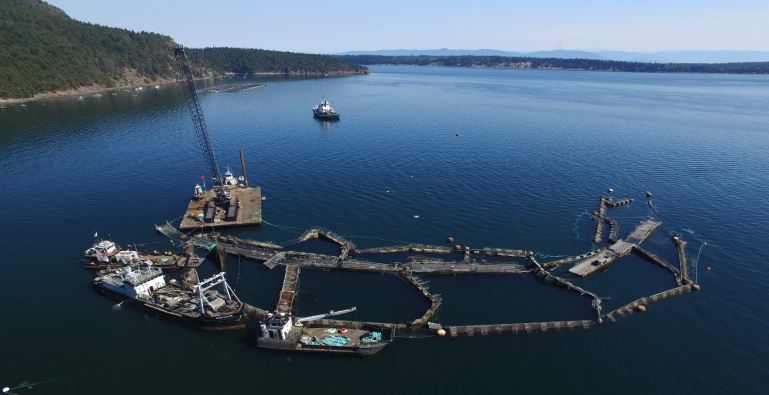Initially, Cooke Aquaculture appealed the penalty to the Pollution Control Hearings Board, but in a legal settlement with Ecology, agreed to pay the full penalty.
The collapse in August 2017 led to a multi-agency investigation, and ultimately to the state Legislature passing a bill to phase out non-native fish farming.
As a result of the investigation, Ecology fined Cooke for water quality permit violations that include: poor net cleaning and maintenance; failing to follow required protocol for repairs; and, insufficient attention to structural engineering.
The Legislature determined in 2018 that farming non-native fish, such as Atlantic salmon, in Washington’s marine waters would be phased out starting in 2022 as part of House Bill 2597. This means Cooke is allowed to continue with Atlantic salmon farming until 2022.
Ecology also is updating and strengthening the water quality permits for Cooke’s four remaining floating fish pens near Hope Island and in Rich Passage near Bainbridge Island. Additional protective measures to be included in the permits include:
- Increasing underwater video monitoring of net pens
- Conducting inspections to assess structural integrity of the net pens and submit inspection reports certified by a qualified marine engineer to Ecology
- Improving net cleaning and maintenance procedures to prevent fish escape
- Requiring the permittee to develop site specific response plans in the event of a fish release, and to conduct and participate in preparedness trainings
- Requiring improved maintenance of the net pens
- Maintaining contact information to notify area tribes in the event of a fish release


